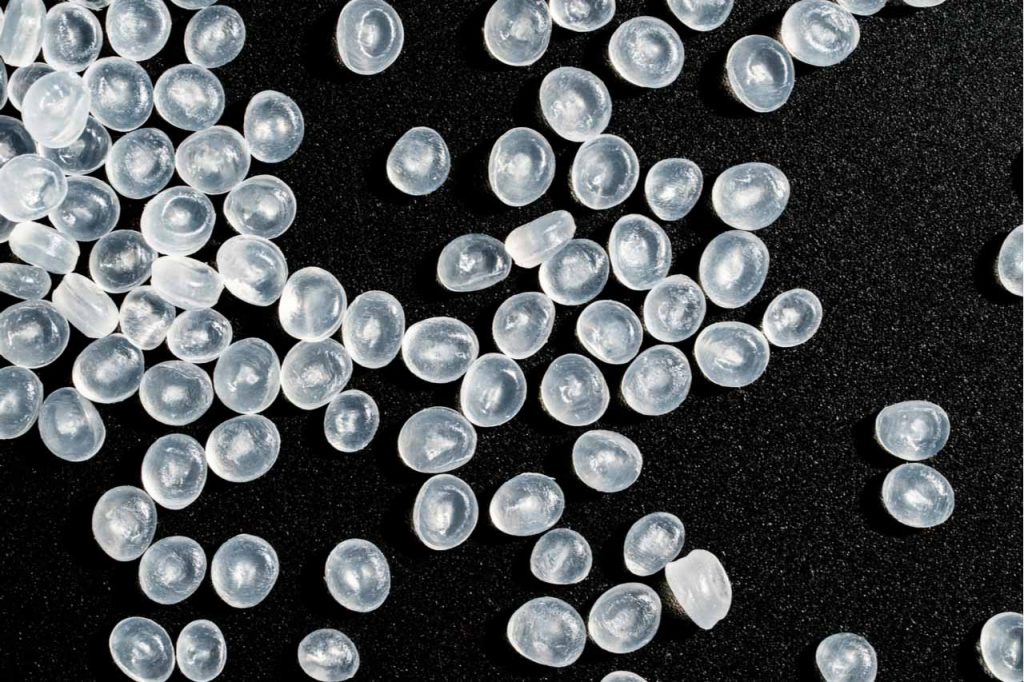
If EVOH is used at too high of a level in an HDPE container, it can damage the quality of the recycled HDPE. | Koray Akar/Shutterstock
An innovation is allowing natural HDPE bottles containing higher levels of EVOH to be recycled into pellets that are free of yellowing, gels and specks.
RecyClass, an industry-run recyclability evaluation platform in Europe, recently oversaw recyclability testing on natural HDPE bottles containing EVOH as a barrier layer.
Ethylene vinyl alcohol (EVOH) is used to protect the product from degradation caused by gases migrating into the package. However, used at too high of a level, the EVOH can damage the quality of the recycled HDPE.
The container that underwent testing by RecyClass was made up of EVOH sandwiched between layers of natural HDPE. Binding the EVOH and HDPE were two tie layers of PE-g-MAH (polyethylene-grafted maleic anhydride). In total, the EVOH made up 6% of the container weight and PE-g-MAH made up 3% of the weight.
According to a press release, independent testing showed that the PE-g-MAH compatibilized the EVOH and HDPE when the container was recycled. The testing involved standard pre-treatment, extruding the plastic at 220 degrees Celsius, and then using the recycled HDPE pellets in new containers with recycled content up to 25%.
“The results of laboratory tests show that the chemistry of these tie layers can enhance the compatibilization of EVOH and HDPE during the extrusion by avoiding typical yellowing effect as well as an increase of gels and specks in the pellets,” the release noted.
RecyClass indicated that the results are specific to using PE-g-MAH as a tie layer and don’t apply to other materials. EVOH concentrations above 1% using other types of tie layer will require recyclability testing to determine whether they are detrimental to the resulting recycled resin, according to the release.
Based on the results, RecyClass will update its RecyClass Design for Recycling Guidelines for PE-HD Natural and Colored Containers, according to the release. The design guide is used by the group to help evaluate recyclability of packaging submitted by producers for evaluation.
The voluntary guide and testing process in many ways parallel the Association of Plastic Recyclers (APR) Design Guide for Plastics Recyclability and protocols for testing packaging recyclability.
For example, RecyClass and APR both confirmed the recyclability of the Colgate-Palmolive “Samson Technology” toothpaste tube, which is made of HDPE with an EVOH barrier layer and a PET insert.
To receive the latest news and analysis about plastics recycling technologies, sign up now for our free monthly Plastics Recycling Update: Technology Edition e-newsletter.
More stories about technology
- RIT researchers develop AI-based textile recycling system
- Industry nuance is key in adopting emerging technology
- Google, Dow partner on AI to identify recyclables